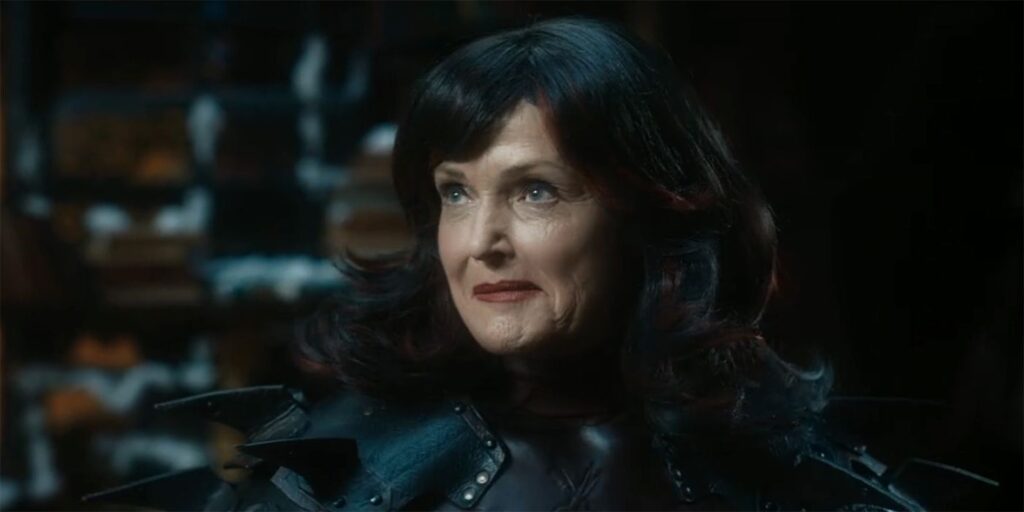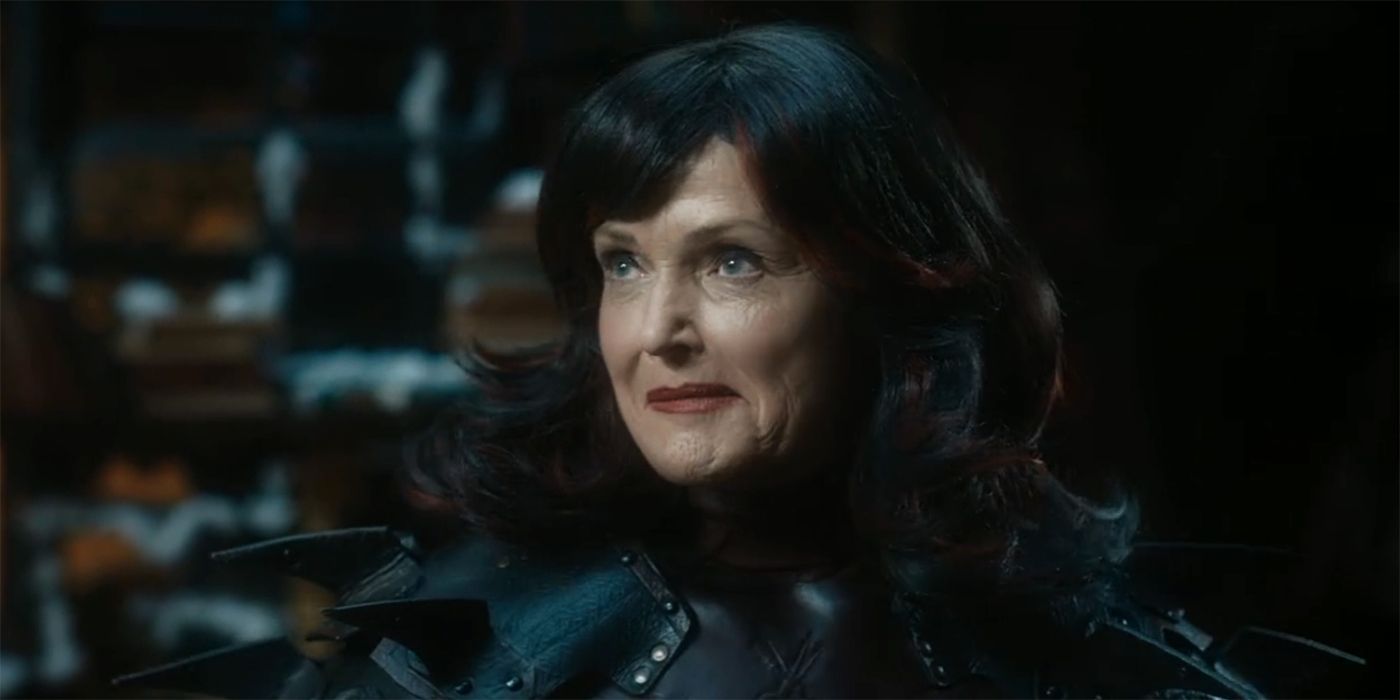
The Endearing Dichotomy of a Demon in ‘Good Omens’: Exploring Crowley’s Complex Character
Neil Gaiman and Terry Pratchett’s collaborative masterpiece, ‘Good Omens,’ presents a world teetering on the brink of Armageddon. Amidst angels, demons, and the Antichrist, one character stands out for his nuanced portrayal: Crowley, the demon. Far from a one-dimensional villain, Crowley embodies a fascinating blend of diabolical charm and unexpected humanity. This article delves into the complexities of Crowley’s character, exploring his motivations, relationships, and the reasons why he has become such a beloved figure in modern fantasy.
The Demon’s Origins and Initial Role
Originally known as Crawly, Crowley’s descent into demonhood began with his role in the serpent’s temptation of Eve in the Garden of Eden. This act, a seemingly straightforward task for a demon, set the stage for Crowley’s long and complicated relationship with humanity. Over the millennia, he climbed the ranks of Hell, becoming a highly regarded, albeit unconventional, demon. His assignments often involved subtle acts of corruption and mischief, rather than outright acts of destruction. This preference for subtlety hints at a deeper intelligence and perhaps a growing disillusionment with the grand scheme of Hell.
In ‘Good Omens,’ Crowley’s primary task is to ensure the Antichrist, Adam Young, is properly influenced towards evil. However, this mission quickly becomes secondary to his growing fondness for life on Earth and his burgeoning friendship with the angel Aziraphale. The very essence of a demon is challenged as Crowley finds himself questioning the inherent goodness of Hell’s plans.
Crowley and Aziraphale: An Unlikely Friendship
The cornerstone of ‘Good Omens’ lies in the unlikely friendship between Crowley and Aziraphale. Representing the forces of Hell and Heaven, respectively, their relationship defies the traditional binary of good versus evil. Over centuries, they develop a deep bond, born out of shared experiences, mutual respect, and a growing appreciation for the pleasures of earthly existence. Their clandestine meetings, often disguised as diplomatic negotiations, become a way for them to navigate the impending apocalypse while simultaneously protecting the world they have come to love. This love of the world directly challenges the fundamental nature of a demon like Crowley.
Crowley’s affection for Aziraphale is evident in his protectiveness and concern for the angel’s well-being. He frequently goes out of his way to safeguard Aziraphale from the machinations of Heaven and Hell, demonstrating a loyalty that transcends their respective allegiances. This deeply rooted connection forces Crowley to confront his own identity as a demon and question the inherent righteousness of his demonic nature. The question arises: can a demon truly be good?
The Allure of Earthly Pleasures and the Rejection of Hell
One of the defining characteristics of Crowley is his embrace of earthly pleasures. Unlike many of his demonic counterparts, who revel in chaos and destruction, Crowley finds joy in the simple things in life: fast cars, fine wine, and the music of Queen. He cultivates an appreciation for human culture and society, further distancing himself from the values of Hell. This embrace of earthly delights is a significant departure from the expected behavior of a demon, highlighting his growing independence and defiance of demonic norms.
Crowley’s rejection of Hell is not merely a matter of personal preference; it is a conscious decision to resist the forces of darkness. He witnesses firsthand the cruelty and senselessness of Hell’s plans, and he actively works to undermine them. His actions demonstrate a moral compass that is far more complex than his demonic origins would suggest. This internal conflict is what makes Crowley such a compelling and relatable character. He is a demon struggling with his own nature, constantly striving to do what he believes is right, even if it means defying his own kind.
Crowley’s Moral Ambiguity and the Question of Redemption
Crowley’s character is defined by his moral ambiguity. He is not inherently good, nor is he entirely evil. He exists in a gray area, constantly grappling with the consequences of his actions and the implications of his demonic nature. This moral complexity is what makes him so fascinating and relatable to audiences. He is a flawed character, capable of both good and bad, just like any human being. Can a demon find redemption?
Throughout ‘Good Omens,’ Crowley’s actions consistently demonstrate a growing sense of morality. He actively works to prevent Armageddon, not out of a desire to serve Heaven, but out of a genuine concern for the well-being of humanity. He risks his own existence to protect Aziraphale and the world they both love. These acts of selflessness suggest that redemption may be possible, even for a demon who began his journey in the Garden of Eden. The show explores the idea that even a demon can choose to be better, to defy expectations, and to forge his own path.
Crowley’s Impact and Legacy
Crowley’s character has had a significant impact on popular culture, particularly within the fantasy genre. He represents a departure from the traditional portrayal of demons as purely evil beings, offering a more nuanced and complex perspective. His wit, charm, and underlying humanity have resonated with audiences, making him a beloved figure in the ‘Good Omens’ fandom. The demon has become an icon.
His legacy extends beyond the realm of fiction. Crowley’s story encourages viewers to question the binary of good versus evil and to consider the possibility of redemption, even for those who have seemingly fallen from grace. He embodies the idea that individuals are not defined by their origins or their past actions, but by the choices they make in the present. The character of the demon Crowley has been praised for his representation of fluidity in morality and identity.
The Evolution of a Demon: From Crawly to Crowley
The transformation from Crawly to Crowley represents a significant shift in character. Crawly, the serpent in the Garden of Eden, was a mere instrument of temptation. Crowley, the demon of ‘Good Omens,’ is a complex individual with his own thoughts, feelings, and motivations. This evolution highlights the potential for change and growth, even within the seemingly rigid structures of Heaven and Hell. The journey of this demon challenges the viewers’ preconceived notions.
His embrace of modernity, his love for Earth, and his unwavering friendship with Aziraphale all contribute to his unique identity. He is a demon who has transcended his demonic nature, becoming something more than the sum of his parts. He is a symbol of hope, demonstrating that even the most unlikely of individuals can find redemption and choose their own destiny. The demon, Crowley, shows that even those from the darkest origins can strive for something better. Crowley is a testament to the power of choice and the enduring human (or perhaps, demon) capacity for change.
Conclusion: Why We Love the Demon Crowley
Crowley’s enduring popularity stems from his multifaceted character and his ability to defy expectations. He is a demon who is not entirely evil, a friend who is not entirely loyal, and an individual who is constantly evolving. His moral ambiguity, his wit, and his underlying humanity make him a relatable and endearing figure, challenging the traditional portrayal of demons in fiction. The character of Crowley, the demon from ‘Good Omens,’ continues to captivate audiences with his complexity and his unwavering pursuit of his own path, proving that even a demon can find a place in our hearts. He is a testament to the idea that good and evil are not always clear-cut, and that even the most unlikely of individuals can find redemption and friendship. The demon Crowley remains one of the most beloved and enduring characters in modern fantasy.
[See also: Good Omens Season 2 Review]
[See also: The Relationship Between Aziraphale and Crowley]
[See also: Neil Gaiman’s Best Works]

